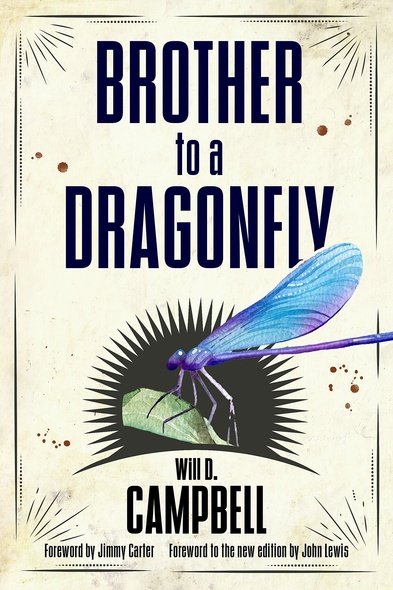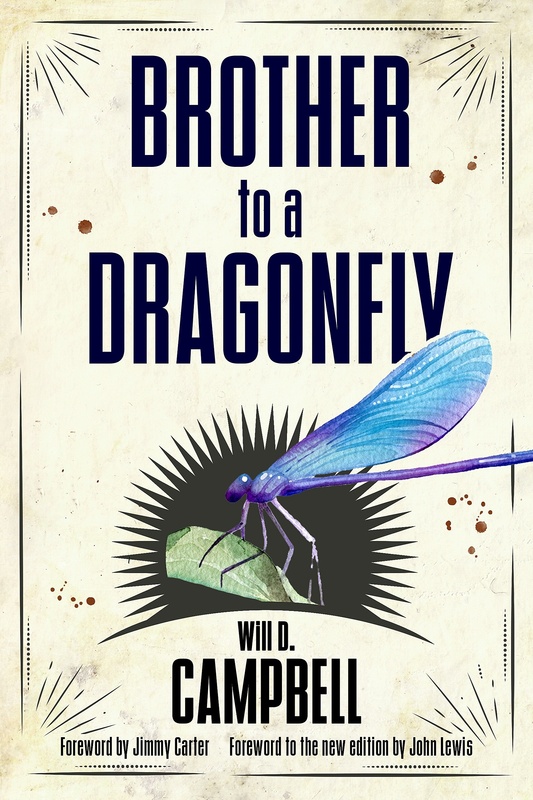In Brother to a Dragonfly, Will D. Campbell (1924–2013) writes about his life growing up poor in Amite County, Mississippi, during the 1930s alongside his older brother, Joe. Though they grew up in a close-knit family and cared for each other, the two went on to lead very different lives. After serving together in World War II, Will became a highly educated Baptist minister who later became a major figure in the early years of the civil rights movement, and Joe became a pharmacist who developed a substance abuse problem that ultimately took his life.
Brother to a Dragonfly also serves as a historical record. Though Will’s love and dedication to his brother are the primary story, interwoven throughout the narrative is the story of the Jim Crow South and the civil rights movement. Will is present through many of the most pivotal moments in history—he was one of four people who escorted black students integrating the Little Rock public schools; he was the only white person present at the founding of the SCLC; he helped CORE and SNCC Freedom Riders integrate interstate bus travel; he joined Dr. Martin Luther King Jr.'s campaign of boycotts, sit-ins, and marches in Birmingham; and he was at the Lorraine Motel the night Dr. King was assassinated.
Will’s accomplishments, however, never take the spotlight from his brother, and as his relationship with Joe evolves, so does Will’s faith. Featuring a new foreword by Congressman John Lewis, this book brings back to print the combined lives of Will Campbell—Will the brother and Will the preacher.
If any parishioners ever dozed off while Brother Campbell was preaching, they must not have been listening.
With pure earthy simplicity, Will Campbell has painted a masterpiece.
Will Campbell has a southern capacity for nostalgia and evokes it delicately but to strong purpose. . . . The two brothers’ lives become mythic for the reader.
A very well-written, touching book.
An extraordinary document, an altogether candid record of personal suffering and fulfillment, of social struggle and commitment. It is a scrupulously honest statement of what it has been to be a southerner, of what it is to be a human being.
Will Campbell’s life has been one of helping us lay down the burden of race. . . . His spirit and his superb writing make Brother to a Dragonfly stand out among memoirs of the Movement.
A fascinating and important book—a biography, it is as compelling as a fine novel, is packed with deep emotional appeals, strong humor, and convincing characterizations, and more than any other single book I know tells what southern life is like on the rough side, where the lath and plaster have not been smoothed off, including matters of daily bread, race, and the belief in Jesus Christ.
Will D. Campbell (1924–2013) was among the most diligent white southerners campaigning for social justice in the civil rights era. He was author of such prize-winning books as Brother to a Dragonfly, Providence, and The Glad River. And, he was profiled in Rolling Stone, Life, Esquire, and The Progressive.






